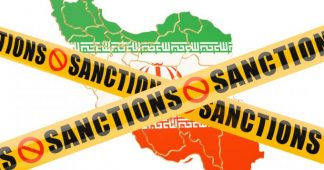Anthony Blinken pushed for intervention in Iraq, Syria, Libya, and Yemen
osted on Categories
On Monday, Joe Biden announced he will nominate his long-time advisor Anthony Blinken to be the secretary of state for the incoming administration. Blinken has a long history of advocating for intervention in places like Iraq, Syria, Libya, and Yemen.
Blinken was Biden’s top aide in 2002 when Biden was leading the charge in the Senate to give George W. Bush his invasion of Iraq. In 2006, Biden penned an Op-ed for The New York Times that called for dividing Iraq into three separate autonomous zones with a central government in Baghdad, later referred to as a “soft partition.” According to the Times, Blinken helped craft Biden’s proposal.
Blinken served various posts in the Obama administration. First, as then-Vice President Joe Biden’s national security advisor from 2009 to 2013, as the deputy national security advisor from 2013 to 2015, and as the deputy secretary of state from 2015 to 2017.
Seen as a loyal Biden aide, Blinken surprised some in the White House when he broke with Biden and supported military intervention in Libya in 2011, according to The Washington Post. Blinken also called for US action in Syria after Barack Obama was reelected in 2012. Sources told the Post in 2013 that Blinken “was less enthusiastic than Biden” about Obama seeking Congressional approval for a military strike on Syria.
In 2019, Blinken co-authored an Op-ed in The Washington Post with neoconservative Robert Kagan. The piece argued against President Trump’s “America First” foreign policy and said the US did “too little” in Syria. “Without bringing appropriate power to bear [in Syria], no peace could be negotiated, much less imposed,” the article reads.
In 2015, Blinken facilitated an increase in weapons sales and intelligence sharing for the Saudi-led coalition after it intervened in Yemen to fight the Houthis. “We have expedited weapons deliveries, we have increased our intelligence sharing, and we have established a joint coordination planning cell in the Saudi operation center,” Blinken said in April 2015.
In 2018, Blinken joined over two dozen former Obama administration officials and signed a letter calling for an end to US support for the war in Yemen. But in 2019, Blinken’s name was noticeably absent from a similar letter that included Obama-era officials like Susan Rice, Samantha Power, and Ben Rhodes.
One area where a Biden administration could be less hawkish than a Trump administration is Iran. Blinken has been critical of President Trump’s decision to withdraw from the 2015 Iran nuclear deal, known as the Joint Comprehensive Plan of Action (JCPOA). Speaking at an event earlier this year, Blinken said Biden would return to the JCPOA. “[Biden] would seek to build on the nuclear deal to make it longer and stronger if Iran returns to strict compliance,” he said.
While Blinken is a proponent of the JCPOA, it’s worth noting that Iran hawks seem happy with Biden’s choice. Mark Dubowitz, the head of the Foundation for Defense of Democracies, a think tank that regularly calls for regime change in Tehran, celebrated Blinken’s nomination. Dubowitz wrote on Twitter that Blinken and Michele Flournoy, a front runner to be Biden’s secretary of defense, would make “a superb national security team. The country will be very fortunate to have them in public service.”
Another force that will clash with Biden and Blinken’s stated goal to return back to the JCPOA is Israel, a country Blinken is a staunch supporter of. The Obama administration signed a deal in 2016 that gives Israel $38 billion in military aid over the course of a decade, until 2027.
Shortly after Biden was announced the winner of the presidential election, Israeli sources said they were already planning to reach out to Biden about a new long-term military aid package. With some progressives in Congress calling for the US to leverage military aid to Israel over its abuses of Palestinians, Blinken made it clear that a Biden administration’s support for Israel would be unconditional.
“He [Biden] would not tie military assistance to Israel to any political decisions that it makes. Period. Full stop. He said it; he’s committed to it. And that would be the policy of the Biden administration,” Blinken said in May.
Published at news.antiwar.com











